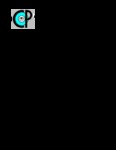| dc.description.abstract | Los patógenos del suelo causan daño severo en los rendimientos de tomate. Por lo tanto, el objetivo del presente trabajo de investigación fue determinar el efecto del compost, lombricompost, y organismos antagónicos en la incidencia de patógenos del suelo en el cultivo del tomate. Los tratamientos evaluados fueron dosis de abono (0,396, 0,792, 1,188 kg) y vermicompost (0,532, 1,065, 1,598 kg), la inoculación combinada de Trichoderma harzianum y la inoculación de Pseudomonas tolaasii, combinación de inoculación de T. harzianum y P. tolaasii, fertilización tradicional de NPK (100-80-60 kg ha-1), 0,792 kg de compost inoculado con la combinación de los organismos antagónicos, 1.598 kg de lombricompost inoculado con organismos antagónicos y un tratamiento de control. El ensayo se llevó a cabo en bolsas con 13 kg de suelo. Sé uso un diseño bloques al azar con seis repeticiones por cada tratamiento. Para evaluar los tratamientos, se calculó el rendimiento de fruta fresca y se cuantificó el número de plantas muertas. Los tratamientos con lombricompost, compost y organismos antagónicos inhibido fitopatógenos del suelo y aumento el rendimiento de la fruta. Las dosis de lombricompost 1,598 kg (equivalente a 150 kg de N ha-1) y de compost 0,792 kg (equivalente a 100 kg ha-1 N) mostraron la mayor inhibición de fitopatógenos del suelo y mayores rendimientos de fruta fresca, en comparación con el testigo que tenía la mayor cantidad de plantas muertas y presento rendimientos bajos. En conclusión, el compost, lombricompost, y los organismos antagónicos desempeñan un papel importante en la inhibición de fitopatógenos del suelo y mejoran el rendimiento del cultivo de tomate. _______________ ORGANIC FERTILIZER AND ANTAGONISTIC ORGANISMS ON INHIBITION OF PHYTOPATHOGENS FUNGI ON CROP OF TOMATO (Solanum lycopersicum L.). ABSTRACT: Soil pathogens cause severe damage in tomato yields. Therefore, the objective of the present research work was to determine the effect of compost, vermicompost, and antagonistic organisms in the incidence of soil pathogens in tomato crop. The treatments evaluated were doses of compost (0.396, 0.792, 1.188 kg) and vermicompost (0.532, 1.065, 1.598 kg), combined inoculation of Trichoderma harzianum and inoculation of Pseudomonas tolaasii, combination of inoculation of T. harzianum and P. tolaasii, traditional fertilisation of NPK (100-80-60 kg ha-1), 0.792 kg compost inoculated with combined antagonistic organism, 1.598 kg vermicompost inoculated with combined antagonistic organism and a control treatment. The assay was carried out in bags with 13 kg of soil. A randomised block design was used with six replications of the treatments. To evaluate the treatments, fresh fruit yield and number of dead plants were quantified. The treatments with vermicompost, compost, and antagonistic organism inhibited soil phytopathogens and increased fruit yield. The doses of vermicompost 1.598 kg (equivalent to 150 kg N ha-1) and compost 0.792 kg (equivalent to 100 kg N ha-1) showed the greatest inhibition of soil phytopathogens and higher yields of fresh fruit were obtained, compared to the control treatment which had the higher dead plants and lower yields. Individual and combination of antagonistic organisms had less dead plants but higher than the treatments with lower doses of compost and vermicompost. In conclusion, compost, vermicompost, and antagonistic organism played an important role in inhibiting soil plant pathogens and improving crop yields of tomato crop. | es_MX |


